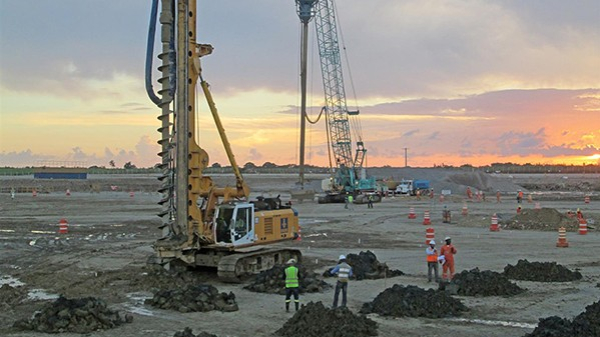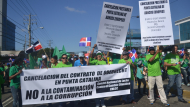Odebrecht corruption in Dominican Republic – Five European banks urged to pull out of dirty coal plant financing
climate@banktrack.org
Enrique de León (Spanish only)
The National Committee to Combat Climate Change
Tel: +1 809 330 0294
Email: enrique.leon05@gmail.com

climate@banktrack.org
Enrique de León (Spanish only)
The National Committee to Combat Climate Change
Tel: +1 809 330 0294
Email: enrique.leon05@gmail.com
European banks must now pull out of financing the $2 billion Punta Catalina coal plant project following recent confirmation of Brazilian company Odebrecht’s widespread use of bribery to secure construction contracts in Dominican Republic, according to NGOs which have been campaigning to stop the controversial project in the Caribbean country.
On December 22, 2016, Odebrecht's long-suspected corruption activities were confirmed in a US court action where, as part of a plea bargain, the company admitted to paying officials to help secure lucrative construction contracts in 12 countries, including Dominican Republic. An investigation into Odebrecht corruption in Dominican Republic has been set up to consider the $92 million in bribes which the company admits to having paid intermediaries and Dominican officials for contracts between 2001 and 2014.
Deutsche Bank, ING, Santander, Société Générale and UniCredit have to date disbursed approximately $320 million out of a planned total loan amount of $632.5 million for the Punta Catalina coal plant. Odebrecht was awarded the Punta Catalina construction contract in dubious circumstances, which campaigners set out in correspondence to the European financiers in April 2016.
Enrique de León, of Dominican group National Committee to Combat Climate Change, said:
“Following our warnings last year, the banks recognised that there were allegations of corrupt practices in connection with the tendering process, but were prepared to give Odebrecht and the Punta Catalina project the benefit of the doubt. Odebrecht’s confessions in a US law court have now put beyond any doubt the extent to which corruption has been central to its business for more than a decade, with Dominican Republic proving to be one of its bribery hotspots. Responsible investors need to take a zero tolerance approach to corrupt companies and projects, and these big European banks must surely now end their involvement in Punta Catalina.”
In the wake of Odebrecht’s corruption admissions the National Committee against Climate Change has called on the Dominican state's purchasing and procurement agency to cancel the company’s contract for Punta Catalina and permanently disqualify it as a state contractor.
The fallout from the Odebrecht scandal continues to reverberate in Dominican Republic. A mass civil society demonstration and ‘March against Impunity’ is planned to take place on Sunday(January 22) in Dominican Republic’s capital Santa Domingo.
Yann Louvel, Climate and Energy Campaign coordinator at BankTrack, commented:
“Deutsche Bank, ING, Santander, Société Générale and UniCredit have to recognise they took a big bet on a very dodgy coal plant and now accept the inevitable: they cannot condone corruption in one of their investments. Coal plant investments in far away parts of the world not only jeopardise the climate but are also jeopardising the credibility of the banks’ due diligence procedures. They would do well now to call a halt to all coal power financing for good.”
Notes for editors:
1. ‘Odebrecht bribed across Latin America’, Deutsche Welle, December 23, 2016.
2. The National Committee to Combat Climate Change’s appeal to the General Directorate of Public Contracts is based on Dominican Republic's Law 340-06, which holds that if procurement-related bribes are confirmed then bidding processes must be cancelled and any executed contracts are to be terminated. The same law also requires the disqualification of companies which have performed bribes, which have committed this offence in other cases or which have executives with convictions for corruption.
The proposed Punta Catalina project, a BankTrack 'dodgy deal', comprises two identical coal-fired units each with 385 megawatt capacity, and the construction of a coal terminal with a capacity of 80,000 tonnes. Project finance for the coal plant was agreed with Société Générale, Deutsche Bank, ING, Santander, UniCredit in summer 2015, alongside a loan guarantee from SACE, Italy’s export credit agency. Background information about the Punta Catalina project is available at the BankTrack website.

